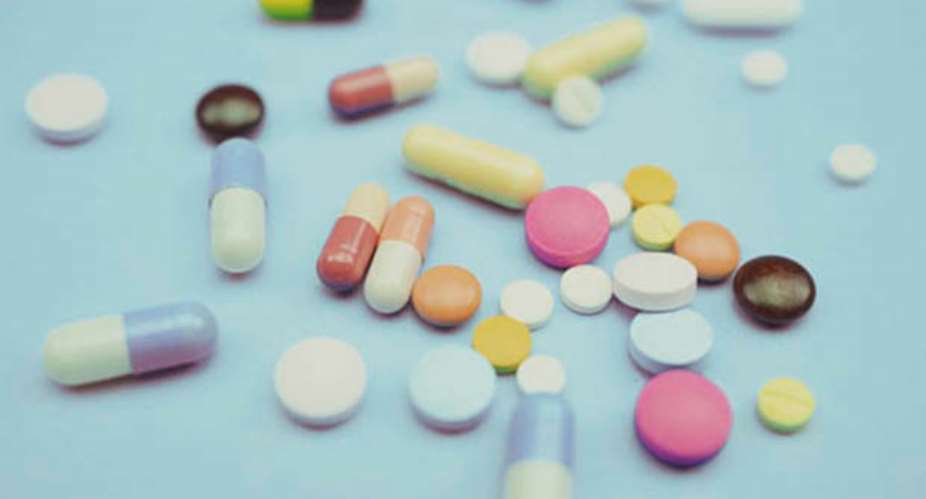The recent World Health Organisation (WHO) alert on the increase in fake drugs in both developed and developing countries is a scary reality which we ignore at our peril as a people.
The foregone reality and the drug abuse trend in our communities paint a gloomy picture about our relationship with medicines.
With antibiotics sold as groundnuts, even at lorry stations, we can state that many persons who patronise these have suffered the side effects of drug abuse, especially counterfeit ones, without knowing the source of their worsened conditions.
The Food and Drugs Authority (FDA), we must acknowledge, have not rested on their oars in confronting the anomalies, their mandate being to protect us against fake and counterfeit drugs, including their abuse.
But with their limited budgetary allocation and ensuing logistical challenges, we cannot expect a thorough execution of their mandate in this regard. Even the developed countries with their sophistications are also saddled with the deadly phenomenon.
Available statistics from WHO indicate that more than 10 percent of medicines in circulation in both hemispheres are counterfeit.
While some of the medicines are counterfeit, others do not meet the standards worthy of addressing the ailments for which they were prescribed in the first place.
It is unfortunate that such medicines in spite of their shortcomings are sold out to unsuspecting persons desperate as they are to get over their conditions, on the blind side of the regulators.
With chronic diseases both of the aged and the young constituting a feature of life in our part of the world, the extent to which lives are being endangered can only be imagined.
Enforcement of laws and regulations has never been easy, the issue of drugs especially being exceptionally more challenging.
We are aware about the level of licences being issued to sellers of medicines. While some are restricted to analgesics and not antibiotics, others must hire pharmacists to run their businesses.
These regulations are all intended to protect the public from the effects of abuse of drugs and the patronage of medicines not fit for consumption because of various factors. These have not been adhered to as required, the outcome being anything but healthy.
Unfortunately, individuals are not helping themselves by their uncooperative attitude towards the regulators.
Enforcement, in our opinion, will only succeed when education and awareness creation about the many fake or counterfeit drugs in circulation and their effects on health and wellbeing of individuals are undertaken effectively.
A sizeable number of adults rely on blood pressure controlling medications, taking these on daily basis. The thought of some of such persons patronising counterfeit drugs can only be scary.
Shouldn't we all join the anti-counterfeit drug campaign by telling one person each about their existence and how to avoid them? We should begin by educating our friends to be inquisitive about the medicines they buy. The date of manufacture, expiry and quality of packaging all tell us about whether or not these are fake or not. Let us start now and alert the relevant regulators when we are suspicious about such products.





 Akufo-Addo commissions Phase II of Kaleo solar power plant
Akufo-Addo commissions Phase II of Kaleo solar power plant
 NDC panics over Bawumia’s visit to Pope Francis
NDC panics over Bawumia’s visit to Pope Francis
 EC blasts Mahama over “false” claims on recruitment of Returning Officers
EC blasts Mahama over “false” claims on recruitment of Returning Officers
 Lands Minister gives ultimatum to Future Global Resources to revamp Prestea/Bogo...
Lands Minister gives ultimatum to Future Global Resources to revamp Prestea/Bogo...
 Wa Naa appeals to Akufo-Addo to audit state lands in Wa
Wa Naa appeals to Akufo-Addo to audit state lands in Wa
 Prof Opoku-Agyemang misunderstood Bawumia’s ‘driver mate’ analogy – Miracles Abo...
Prof Opoku-Agyemang misunderstood Bawumia’s ‘driver mate’ analogy – Miracles Abo...
 EU confident Ghana will not sign Anti-LGBTQI Bill
EU confident Ghana will not sign Anti-LGBTQI Bill
 Suspend implementation of Planting for Food and Jobs for 2024 - Stakeholders
Suspend implementation of Planting for Food and Jobs for 2024 - Stakeholders
 Tema West Municipal Assembly gets Ghana's First Female Aircraft Marshaller as ne...
Tema West Municipal Assembly gets Ghana's First Female Aircraft Marshaller as ne...
 Dumsor is affecting us double, release timetable – Disability Federation to ECG
Dumsor is affecting us double, release timetable – Disability Federation to ECG
